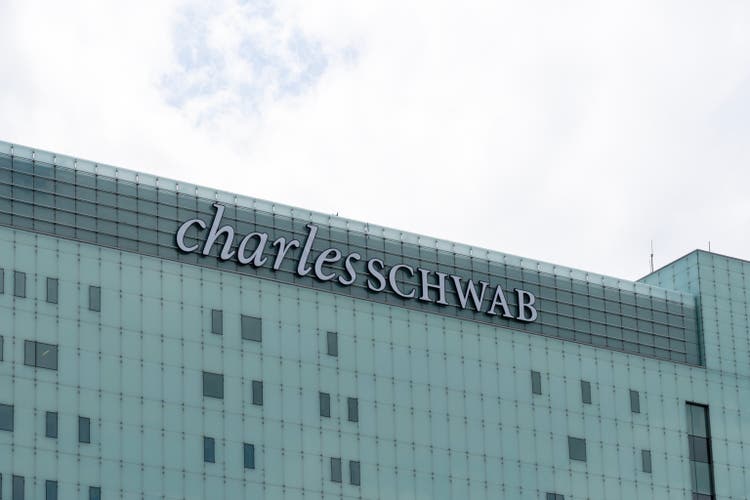JHVEPhoto/iStock Editorial via Getty Images
Listen below or on the go on Apple Podcasts and Spotify
Schwab adds more than 1,100 securities to overnight trading platform. (0:15) Verizon boosts guidance. (1:14) Sarepta struggles as it defies FDA. (2:00)
This is an abridged transcript of the podcast:
Our top story so far, Charles Schwab (SCHW) has expanded the list of securities available on its thinkorswim platform for overnight trading.
It’s another concrete step towards 24-hour stock trading, which, as you heard on Wall Street Breakfast, the London Stock Exchange Group is reportedly evaluating.
Schwab’s retail clients can now trade more than 1,100 securities — mainly exchange-traded funds — 24 hours a day, five days a week.
Ameritrade, which Schwab acquired in 2020, was the first U.S. retail broker-dealer to make 24/5 trading available in 2018, offering some two dozen ETFs in the overnight session.
James Kostulias, head of trading services, says: “Since launching the broad availability of expanded overnight trading earlier this year, we have seen tremendous client engagement and received great feedback, and this further expansion is driven by what clients are telling us they want.”
The three stocks most traded by Schwab clients in the overnight session since February are Tesla (TSLA), Nvidia (NVDA) and Nio (NIO). Other highly traded symbols in the overnight session include Microsoft (MSFT), Apple (AAPL), Amazon (AMZN) and Advanced Micro Devices (AMD).
Among active stocks, Verizon (VZ) raised its profit forecast for full-year profit and posted a massive topline beat in its second-quarter earnings report.
Verizon now expects adjusted earnings per share growth of 1% to 3% for 2025, up from the 0% to 3% previously provided. The company also raised its FY adjusted EBITDA growth to 2.5% to 3.5%, from 2% to 3.5%; cash flow from operations to $37 billion to $39 billion (est. $36.5 billion) and free cash flow of $19.5 billion to $20.5 billion (est. $18.24 billion).
Block (XYZ) is surging after S&P Dow Jones Indices said it will add the Cash App parent to the S&P 500 Index, replacing Hess (HES), which is set to be acquired by Chevron (CVX). The change will take effect on July 23.
And Sarepta Therapeutics (SRPT) continued its slide after plunging 36% Friday. The decline follows the company’s refusal to halt all shipments of its gene therapy Elevidys, despite reports linking three patient deaths to its treatments.
FDA said its leaders met with Sarepta and requested it voluntarily stop all shipments of the drug, which is its biggest product. “The company refused to do so,” the agency said.
In other news of note, Design software company Figma plans to raise about $330 million in its IPO, offering about 12.47 million class A common shares priced in the range of $25 to $28 per share.
Figma is targeting a fully-diluted valuation of up to $16.4 billion, according to Reuters.
Pricing at the midpoint of the range at $26.50, Figma said it expects net proceeds of about $305.9 million after deducting estimated underwriting discounts and commissions and estimated offering expenses payable by the company
In 2022, Adobe (ADBE) tried to acquire Figma for $20 billion. But the deal ran into regulatory scrutiny globally and the companies ultimately scrapped the merger, which resulted in Adobe paying Figma a $1 billion breakup fee.
And in the Wall Street Research Corner, President Donald Trump’s hunger for a lower fed funds rate could have an unlikely winner across the pond.
T.S. Lombard economist Dario Perkins notes that: “Thomas Drechsel constructed a measure of Fed-President interactions (based on presidential diary schedules) and then, by looking at episodes where we know for sure that the Fed caved (e.g. to Nixon before the 1972 election, and to Lyndon Johnson at various points during the 1960s) he was able to construct an index of political pressure.”
“Drechsel found that pressuring the Fed into lowering rates creates a persistent rise in inflation,” Perkins said. “Moreover, monetary easing in response to political pressure is not like ordinary monetary easing. Inflation rises, but there is no discernible boost to real GDP – in fact, output eventually drops (though the results were not statistically significant).”
“The reason is that inflation expectations rise, particularly when the political pressure is publicly observable & widely discussed in the press,” he added.
“Given these results, you would have to take a very myopic view to believe that firing Powell – or replacing him with a Trump loyalist – is ‘good’ for risk assets,” Perkins said. “And it would be particularly troublesome for the dollar (DXY) given that global investors (unlike domestic US retail investors) remain skeptical about the currency’s safe-haven properties.”
“The obvious beneficiary would be the euro (FXE) (EUR). Because, in the mold of the Bundesbank, the ECB is one of the most independent central banks in the world.”
#Wall #Street #Lunch #Charles #Schwab #Expands #Overnight #Trading #Increases #Security #Options
